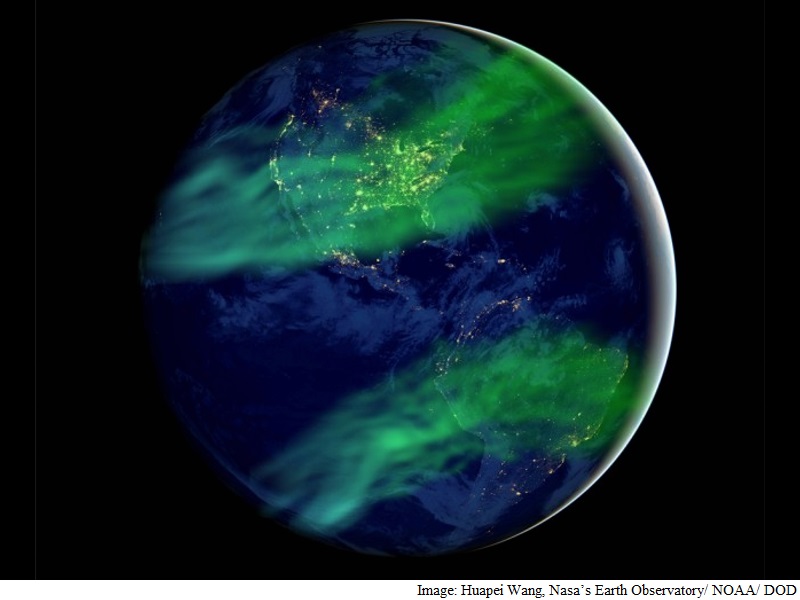- Home
- Science
- Science News
- Earth's Magnetic Field Is Not About to Flip
Earth's Magnetic Field Is Not About to Flip

The intensity of the Earth's magnetic field has been weakening for the last couple of hundred years, leading some scientists to think that its polarity might be about to flip.
But now scientists said the field's intensity may simply be coming down from an abnormal high rather than approaching a reversal.
The weakening of the Earth's magnetic field would affect technology.
The magnetic field deflects the solar wind and cosmic rays. When the field is weaker, more radiation gets through, which can disrupt power grids and satellite communications.
"The field may be decreasing rapidly, but we are not yet down to the long-term average. In 100 years, the field may even go back the other direction [in intensity]," said study co-author Dennis Kent from Columbia University's Lamont-Doherty Earth Observatory.
The scientists used a new technique to measure changes in the magnetic field's strength in the past and found that its long-term average intensity over the past five million years was much weaker than the global database of paleointensity suggests - only about 60 percent of the field's strength today.
The findings raise questions both about claims that the magnetic field may be nearing a reversal.
The study's results fit expectations that the magnetic field's intensity at the poles should be twice its intensity at the equator.
In contrast, the time-averaged intensity calculated from the PINT paleointensity database doesn't meet the two-to-one, poles-to-equator dipole hypothesis, and the database calculation suggests that the long-term average intensity over the past five million years is similar to the field's intensity today.
The study appeared the journal Proceedings of the National Academy of Sciences.Get your daily dose of tech news, reviews, and insights, in under 80 characters on Gadgets 360 Turbo. Connect with fellow tech lovers on our Forum. Follow us on X, Facebook, WhatsApp, Threads and Google News for instant updates. Catch all the action on our YouTube channel.
Related Stories
- Samsung Galaxy Unpacked 2025
- ChatGPT
- Redmi Note 14 Pro+
- iPhone 16
- Apple Vision Pro
- Oneplus 12
- OnePlus Nord CE 3 Lite 5G
- iPhone 13
- Xiaomi 14 Pro
- Oppo Find N3
- Tecno Spark Go (2023)
- Realme V30
- Best Phones Under 25000
- Samsung Galaxy S24 Series
- Cryptocurrency
- iQoo 12
- Samsung Galaxy S24 Ultra
- Giottus
- Samsung Galaxy Z Flip 5
- Apple 'Scary Fast'
- Housefull 5
- GoPro Hero 12 Black Review
- Invincible Season 2
- JioGlass
- HD Ready TV
- Laptop Under 50000
- Smartwatch Under 10000
- Latest Mobile Phones
- Compare Phones
- Realme P4x 5G
- OnePlus Ace 6T
- OPPO A6x 5G
- Samsung Galaxy Z TriFold
- Poco F8 Ultra
- Poco F8 Pro
- Huawei Mate 80 RS Master Edition
- Huawei Mate 80 Pro Max
- Asus ProArt P16
- MacBook Pro 14-inch (M5, 2025)
- Poco Pad M1
- Poco Pad X1
- Just Corseca Skywatch Pro
- Honor Watch X5
- Acerpure Nitro Z Series 100-inch QLED TV
- Samsung 43 Inch LED Ultra HD (4K) Smart TV (UA43UE81AFULXL)
- Asus ROG Ally
- Nintendo Switch Lite
- Haier 1.6 Ton 5 Star Inverter Split AC (HSU19G-MZAID5BN-INV)
- Haier 1.6 Ton 5 Star Inverter Split AC (HSU19G-MZAIM5BN-INV)

















